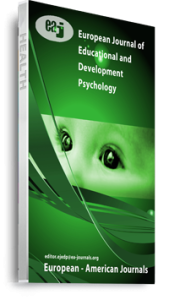This study examined the relationship between academic self-efficacy and academic performance of secondary school students in Delta North Senatorial District. Three research questions and three hypotheses guided the study. This study adopted a correlational research design. The population of the study comprised 16,473 Senior Secondary School Three (SSS 3) in government-owned secondary schools in Delta North Senatorial District. The sample of the study comprised 1,647 secondary school students in Delta North Senatorial District, which represents 10% of the total population. A multistage sampling procedure was used in the sampling. A questionnaire and students’ past result were used for data collection in this study. The face validity of the questionnaire was examined through experts’ judgment while factor analysis was used to estimate its content and construct validities. The reliability was tested by using Cronbach alpha for estimating the internal consistency of the instrument. It yielded a coefficient of 0.69 for Academic self-efficacy Rating Scale. The data obtained were analysed with Pearson’s product moment correlation and coefficient of determination for the research questions and Regression statistics was used to test for the hypotheses at a 0.05 level of significance. The findings of the study revealed that there was a significant relationship between academic self-efficacy and academic performance of secondary school students; that there was a significant relationship between sex and academic performance of secondary school students; and that there is was significant relationship between school location and academic performance of secondary school students. The study recommended amongst others, that schools should implement programmes that enhance students’ academic self-efficacy through mentorship, goal-setting workshops, and positive reinforcement strategies.
Keywords: academic self-efficacy; academic performance; gender, school location; secondary school students

